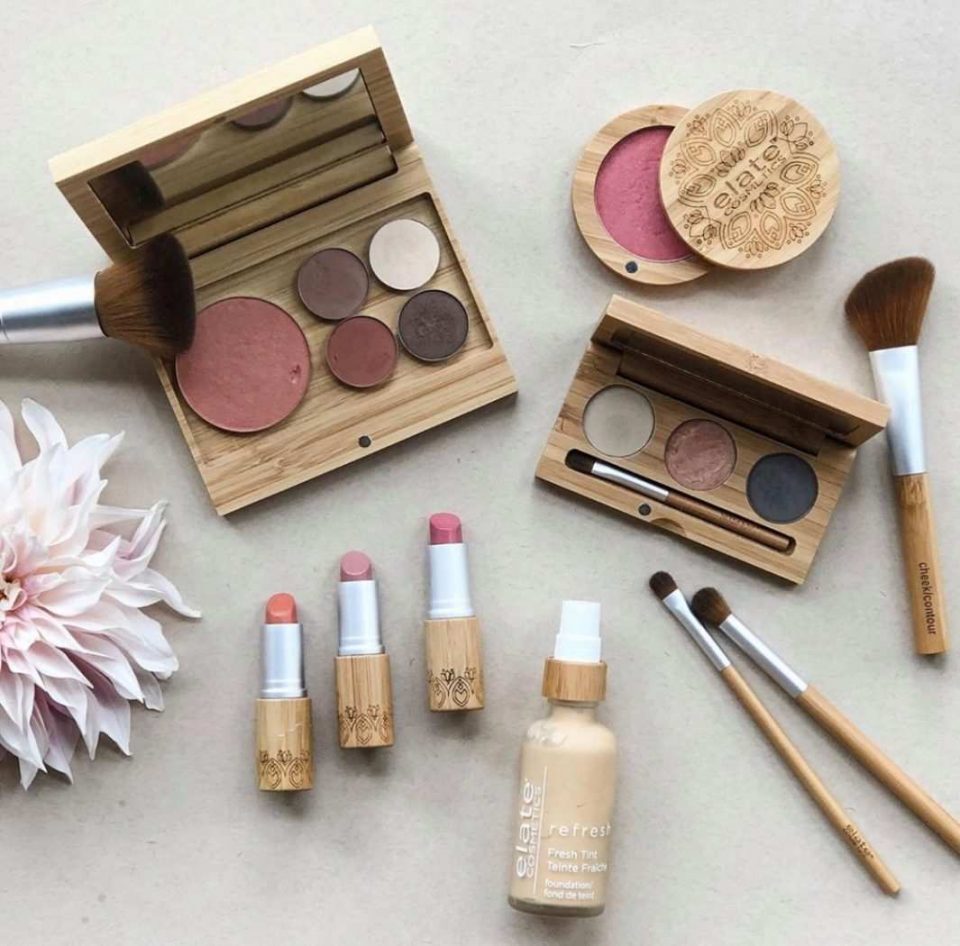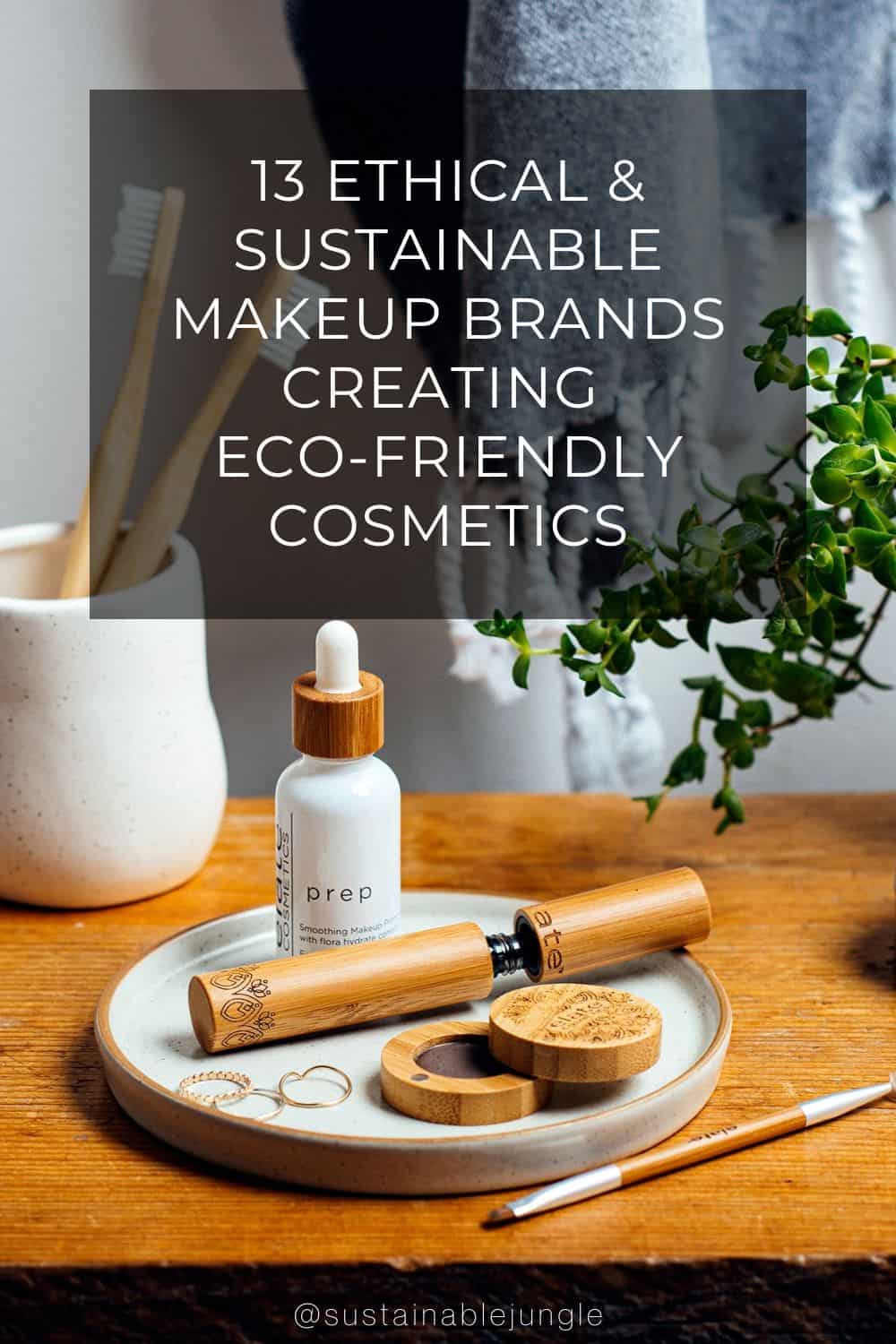The Eco-Conscious Beauty Revolution: Exploring the Sustainability of Natural Makeup Brands
Related Articles: The Eco-Conscious Beauty Revolution: Exploring the Sustainability of Natural Makeup Brands
Introduction
With enthusiasm, let’s navigate through the intriguing topic related to The Eco-Conscious Beauty Revolution: Exploring the Sustainability of Natural Makeup Brands. Let’s weave interesting information and offer fresh perspectives to the readers.
Table of Content
The Eco-Conscious Beauty Revolution: Exploring the Sustainability of Natural Makeup Brands

The beauty industry, a multi-billion dollar global enterprise, has long been criticized for its environmental impact. Excessive packaging, synthetic ingredients, and a culture of disposable products have led to a growing concern about the industry’s contribution to pollution, resource depletion, and animal welfare. However, a growing movement towards sustainable practices is taking root, with natural makeup brands leading the charge.
This shift towards natural beauty is driven by a consumer demand for products that are not only good for their skin but also good for the planet. Natural makeup brands often boast of using ingredients derived from plants, minerals, and other natural sources, promoting a more eco-conscious approach. But are these claims truly sustainable? This article delves into the complex world of natural makeup brands, examining the factors that determine their eco-friendliness and exploring the benefits of choosing these brands over conventional options.
Beyond the Label: Examining the Sustainability of Natural Makeup Brands
"Natural" is a broad term, and its interpretation can vary significantly across brands. While some brands may genuinely prioritize sustainable practices, others may merely use the term as a marketing strategy. To evaluate the true eco-friendliness of natural makeup brands, it is crucial to consider various factors:
1. Ingredient Sourcing and Processing:
- Organic and Sustainable Agriculture: The origin of ingredients is paramount. Brands that source ingredients from organic farms, prioritizing sustainable agricultural practices that minimize pesticide use, conserve water, and protect biodiversity, are a positive sign.
- Fair Trade and Ethical Sourcing: Ensuring ethical sourcing of ingredients, particularly those from developing countries, is critical. Fair trade practices guarantee fair compensation for farmers and workers, promoting ethical and responsible sourcing.
- Minimally Processed Ingredients: Natural does not necessarily equate to unprocessed. Brands that use minimally processed ingredients, avoiding harsh chemicals and unnecessary processing steps, minimize their environmental impact.
2. Packaging and Production:
- Recyclable and Reusable Packaging: The packaging used by natural makeup brands plays a significant role in their sustainability. Brands utilizing recyclable materials like glass, aluminum, and paperboard, or offering refillable options, demonstrate a commitment to reducing waste.
- Sustainable Manufacturing Practices: The production process itself should be eco-conscious. Brands that employ energy-efficient manufacturing techniques, minimize waste generation, and prioritize renewable energy sources are contributing to a more sustainable beauty industry.
3. Animal Welfare and Cruelty-Free Practices:
- Cruelty-Free Certification: Animal testing is a significant ethical concern in the beauty industry. Natural makeup brands should be certified cruelty-free, ensuring that their products and ingredients are not tested on animals.
- Vegan Products: Some natural makeup brands go beyond cruelty-free and offer vegan products, avoiding any animal-derived ingredients.
4. Transparency and Communication:
- Clear Labeling and Ingredient Lists: Transparency is crucial for building trust with consumers. Brands should clearly label their products, providing detailed ingredient lists and information about their sourcing practices.
- Open Communication and Sustainability Reports: Brands that openly communicate their sustainability initiatives, sharing information about their environmental and social impact, demonstrate a commitment to transparency and accountability.
Benefits of Choosing Natural Makeup Brands
Choosing natural makeup brands can offer numerous benefits beyond simply being eco-friendly:
- Healthier Skin: Natural ingredients are often gentler on the skin, minimizing the risk of irritation, allergies, and breakouts.
- Reduced Environmental Impact: By opting for natural makeup, consumers contribute to a more sustainable beauty industry, reducing the use of harmful chemicals, minimizing waste, and supporting ethical sourcing practices.
- Support for Ethical Businesses: Choosing natural makeup brands that prioritize sustainability often means supporting businesses committed to ethical practices, fair labor standards, and environmental responsibility.
- Increased Awareness: By choosing natural makeup, consumers contribute to a growing movement towards sustainable beauty, raising awareness about the environmental impact of the industry and encouraging other brands to adopt more sustainable practices.
FAQs on Natural Makeup Brands and Eco-friendliness
1. Are all natural makeup brands eco-friendly?
Not all natural makeup brands are eco-friendly. The term "natural" can be misleading, and it is crucial to research individual brands and their practices. Look for brands that prioritize sustainable sourcing, eco-friendly packaging, and ethical production practices.
2. How can I identify eco-friendly natural makeup brands?
Look for brands that:
- Are certified organic or use ingredients from organic farms.
- Have transparent ingredient lists and information about their sourcing practices.
- Utilize recyclable and reusable packaging.
- Are cruelty-free and/or vegan.
- Publish sustainability reports or engage in open communication about their environmental and social impact.
3. Are natural makeup brands more expensive than conventional brands?
Natural makeup brands can be more expensive, but this is often due to the higher cost of sourcing and processing natural ingredients, using sustainable packaging, and prioritizing ethical practices. However, many brands offer a range of price points, and consumers can find affordable options within the natural makeup market.
4. Can I make my own natural makeup?
Yes, it is possible to make your own natural makeup using simple ingredients like herbs, spices, and natural pigments. This can be a cost-effective and eco-friendly option. However, it is essential to research safe and effective recipes and ensure proper hygiene practices.
Tips for Choosing Eco-Friendly Natural Makeup Brands
- Research brands thoroughly: Look for information about their sourcing practices, packaging, production methods, and ethical commitments.
- Read reviews: Check online reviews and forums to see what other consumers have to say about the brand’s products and sustainability practices.
- Look for certifications: Seek out brands that are certified organic, cruelty-free, or vegan.
- Prioritize transparency: Choose brands that are open about their ingredients, sourcing practices, and environmental impact.
- Support local brands: Consider supporting local natural makeup brands that are committed to sustainability and ethical practices.
Conclusion: Embracing a Sustainable Beauty Future
The shift towards natural makeup brands represents a significant step towards a more sustainable beauty industry. By prioritizing natural ingredients, sustainable packaging, and ethical practices, these brands offer a more eco-conscious alternative to conventional cosmetics. However, it is crucial for consumers to be discerning and informed, carefully evaluating the claims and practices of individual brands. By making conscious choices and supporting sustainable brands, consumers can contribute to a beauty industry that is both beautiful and responsible.








Closure
Thus, we hope this article has provided valuable insights into The Eco-Conscious Beauty Revolution: Exploring the Sustainability of Natural Makeup Brands. We hope you find this article informative and beneficial. See you in our next article!